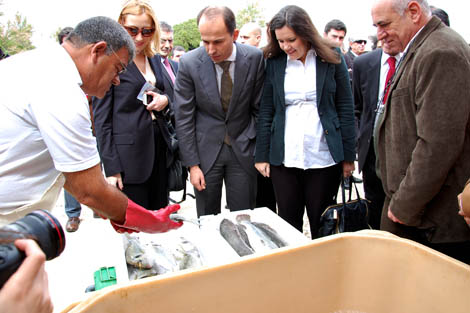 Enormous and fresh sea breams and croakers, freshly "fished" from the tanks of the Pisciculture Pilot Station in Olhão, will reinforce the menu of users supported by the Santa Casa da Misericórdia of Moncarapacho, whether in the nursing home, in home support during these Easter days. or in the social canteen.
Enormous and fresh sea breams and croakers, freshly "fished" from the tanks of the Pisciculture Pilot Station in Olhão, will reinforce the menu of users supported by the Santa Casa da Misericórdia of Moncarapacho, whether in the nursing home, in home support during these Easter days. or in the social canteen.
The provider José Marcelino was not happy this morning, when he received the news that more than forty kilos of fish would be donated at that time to the institution he runs, making the Misericórdia de Moncarapacho the first social institution in the Algarve to benefit from a protocol which had just been signed by the ministers of Agriculture and Sea (Asunción Cristas) and of Social Solidarity (Pedro Mota Soares).
The protocol between MAMAOT and the MSSS establishes the delivery, to Social Solidarity Institutions in the Algarve region, of 2.500 kilos of fish, produced at the Olhão Piscicultura Station and which, for reasons related to the financing of scientific projects , cannot be traded.
It is an unprecedented protocol, which the minister of Solidarity Pedro Mota Soares said he hopes can be extended to "other sources of fish and other regions of the country."
Minister Assunção Cristas explained how it all started: «this Pilot Station, which carries out fundamental research work, had these 2,5 tons of very high quality fish that I couldn't sell, but couldn't throw away either. In the meantime we had these good croakers, growing, and we had to find a solution for them. We remember to contact the Ministry of Solidarity. Fish of this quality, certified and not being able to be used, was a pain in the soul… That is why this protocol was established between the two ministries».
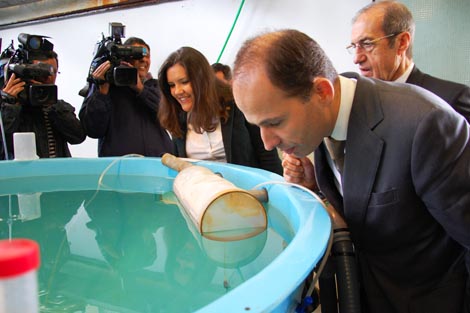 To start with, the fish produced at EPPO will be distributed to the 38 social solidarity institutions that have joined the Food Emergency Program and run social canteens. Ofélia Ramos, regional director of the Social Security Institute, explained to Sul Informação which are not yet defined exactly which institutions will be covered, since they will have to be the ones “expressing an interest in receiving this fish to start the process”. But that, he assured, will happen already «next week».
To start with, the fish produced at EPPO will be distributed to the 38 social solidarity institutions that have joined the Food Emergency Program and run social canteens. Ofélia Ramos, regional director of the Social Security Institute, explained to Sul Informação which are not yet defined exactly which institutions will be covered, since they will have to be the ones “expressing an interest in receiving this fish to start the process”. But that, he assured, will happen already «next week».
Users of these 38 IPSS will thus be the first in the whole country to eat croakers raised in aquaculture, as this is one of the most important aspects of the research being carried out at the Pilot Station, at Quinta de Marim, in Olhão, as he explained Pedro Pousão, its director, to the two ministers, during their visit to the facilities.
On the way out, in front of the polystyrene boxes, where the croakers and sea breams, weighing a kilo and a half, were being packed with crushed ice to be transported to the Misericórdia of Moncarapacho, Pedro Pousão guaranteed, turning to Minister Assunção Crests: "this fish is fantastic, any one of us would like to eat it".
For his part, Nuno Simões, an employee of the Pilot Station, held a very fresh bream in his hands and proudly added: «I used to be a fisherman and I say that you don't notice the difference in flavor between this fish from aquaculture and fish from the sea» .
José Marcelino, provider of the Misericórdia de Moncarapacho, was keen to congratulate “the Government's initiative”, noting that, despite “we always have fresh fish in the meals we prepare, we rarely have this quality of fish”. And he took the opportunity to say that the gift in the middle of Lent really came in handy, "because now and until Easter Sunday you can't eat meat."
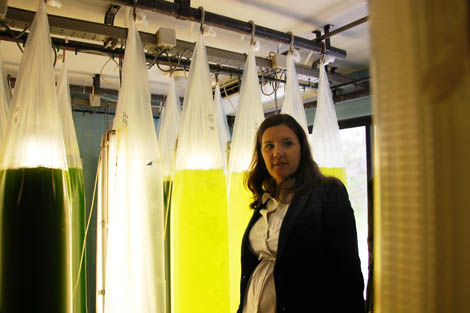 The Pisciculture Pilot Station in Olhão is a Research and Technological Development structure for the production of species with potential interest for national aquaculture.
The Pisciculture Pilot Station in Olhão is a Research and Technological Development structure for the production of species with potential interest for national aquaculture.
This location is also a privileged support for the transfer of technology, technical and scientific training in the area of aquaculture, an aspect that was highlighted by the Minister of the Sea.
Assunção Cristas, who once again stressed that "this area should be seen as a major priority in the development strategy for the economy of the Sea", revealed that, within the scope of PROMAR, in the first three months of the year, projects with a global value of 36 million euros, of which 6 million refer to applications in the area of aquaculture, especially in the Algarve. "The goal is to double the production of fish and bivalves in aquaculture by 2015," explained the official.
The Pisciculture Pilot Station in Olhão, located next to the Ria Formosa, is made up of a maternity hospital and several feeding areas for the species.
This space also has an oceanic cage where fish cultivation trials take place in off-shore systems.
Pedro Pousão, director of the EPPO, added that, after this first donation of 2,5 tons of fish, "in three or four months we will have a few hundred more kilos to donate and then there will always be fish." And once again it proves that it is possible to combine the useful – applied research – with the pleasant – the donation of fish produced within the scope of this investigation to those who need it most.
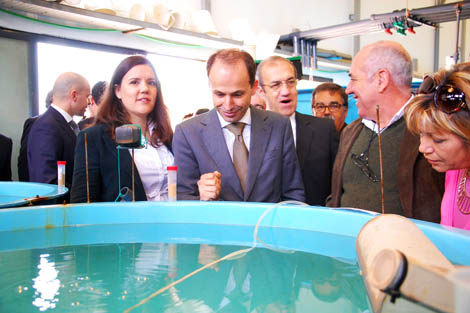
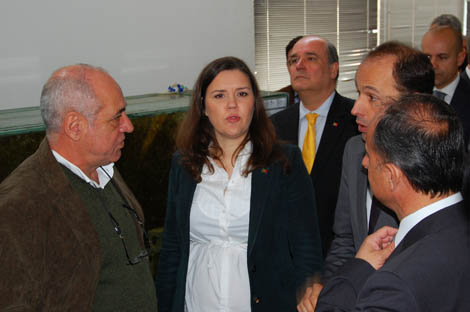
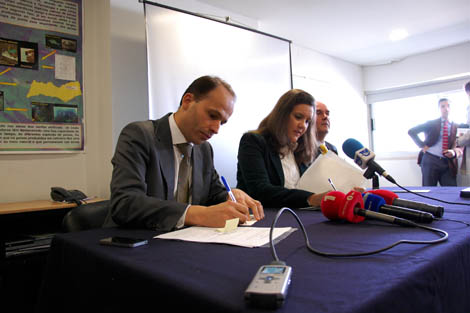
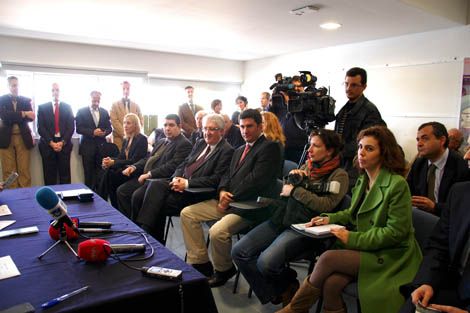
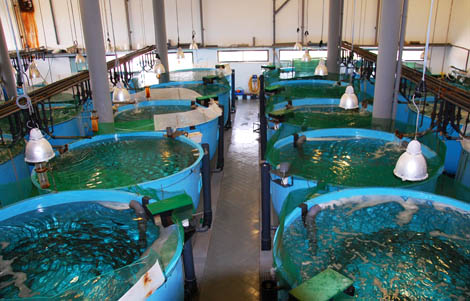


















Comments